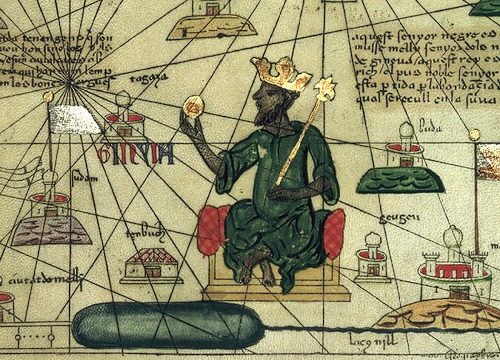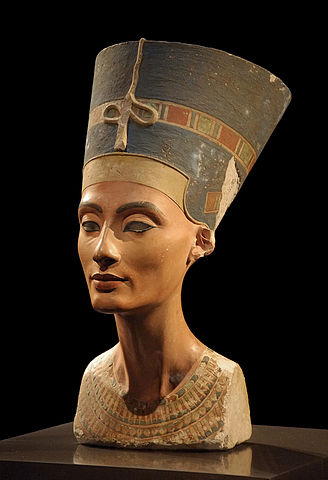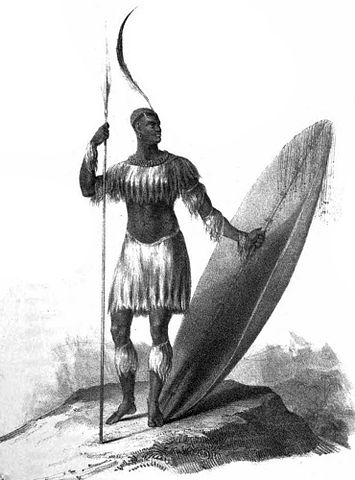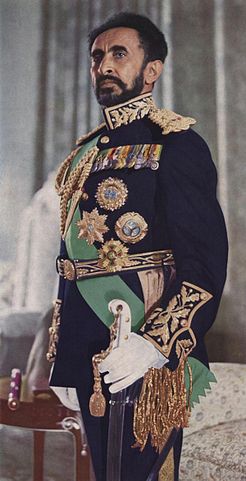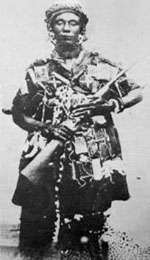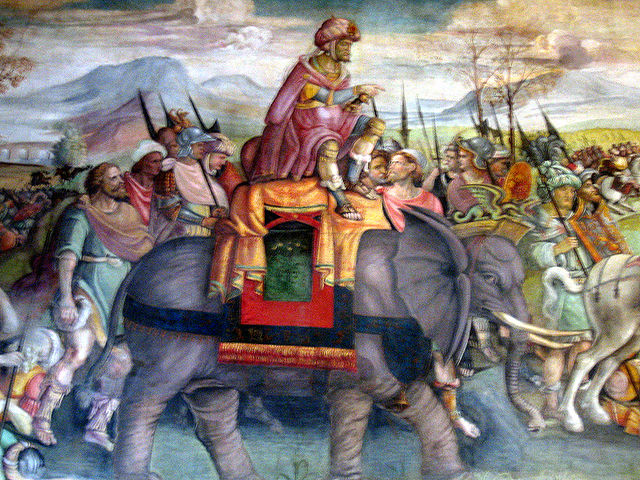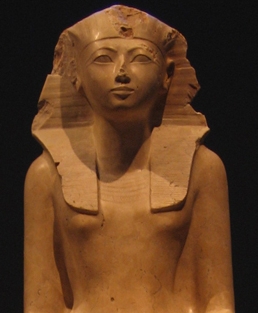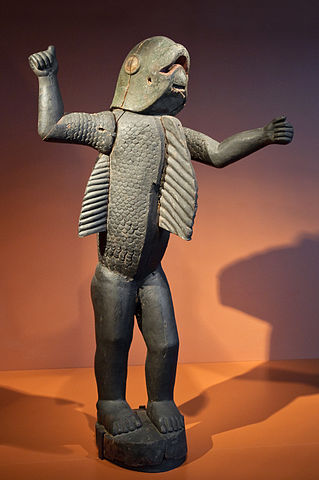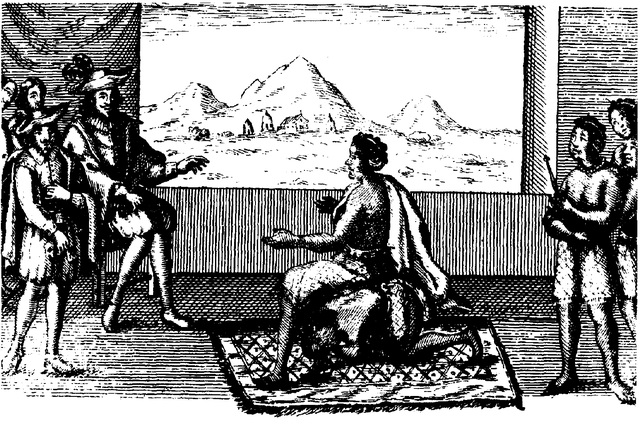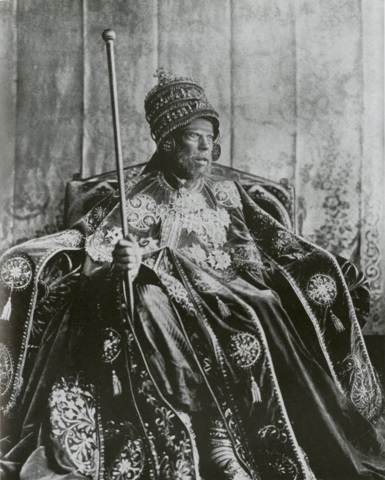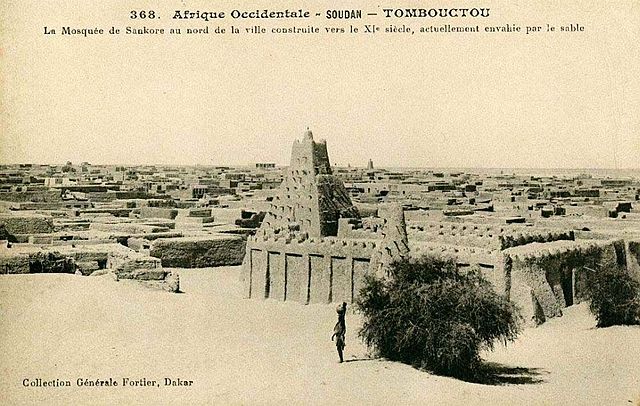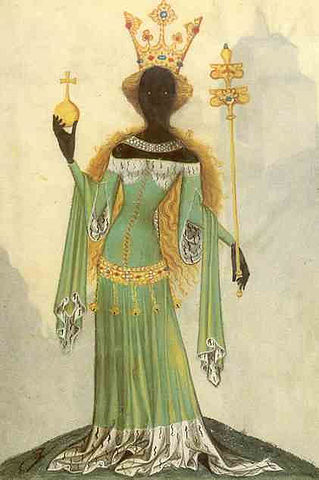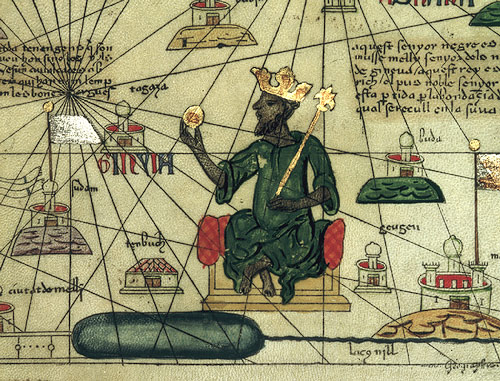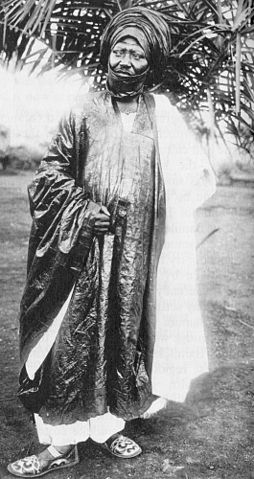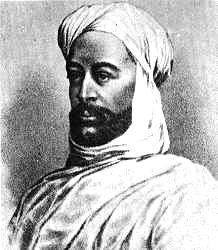Africa has an amazingly rich and complex history and there have been hundreds of important kings, queens, sultans, chiefs, and emperors throughout the millennia. Unfortunately, not all of them are as well known to Westerners as they should be. From great warrior kings to early feminist queens to important political reformers, there are so many great stories and things to learn from them. Largely overshadowed by modern dictators, here are 15 of the most important historical rulers of Africa.
1) Nefertiti
While not the sole monarch of Egypt, she was a hugely important queen, reigning with her husband, Pharaoh Akhenaten and changing Egypt for centuries to come. From the mid-1300s BC, Queen Nefertiti and her husband created an entire new monotheistic religion focusing on the worship of Aten, or the sun disc. Ruling during what is considered to be the wealthiest period of Ancient Egypt, she was immortalized by the famous bust which resides in Berlin’s New Museum.
2) Askia the Great
Askia Muhammad I was one of the most significant emperors of the Songhai Empire in present-day Mali, rising to prominence in the late 15th century. Under his rule, the Songhai Empire became the largest and most powerful kingdom in West Africa, controlling trade routes, politics, and spreading Islam throughout the region. Likewise, Mali became the most important center of culture, trade, and learning in the region.
3) Shaka Zulu
Shaka kaSenzangakhona (don’t worry, we can’t pronounce it, either) was the most important ruler of the mighty Zulu kingdom in the early 1800s. Uniting many neighboring and dissenting tribes, his reign extended over a large swath of southern Africa. Also known as a hugely influential military reformer, he was known for his brutality and erratic behavior in his later years and was eventually assassinated, but not before changing the history of South Africa.
4) Haile Selassie
Emperor Haile Selassie I was the Emperor of Ethiopia for close to 60 years and regarded by many as a living god. Tracing his dynasty from King Solomon and the Queen of Sheba (also included in this list), he was the last traditional ruler over one of the greatest nations in Africa and the only one to never be colonized. Despite repelling the Italians during WWII and doing much for the country, many blame his slow pace of modernization as his downfall, and he was eventually deposed and imprisoned by the military.
5) Queen Mother of Ejisu
Yaa Asantewaa was the queen mother of Ejisu in the Ashanti Empire. While her brother the Ejisuhene actually ruled the empire, she was crucial in leading the Ashanti rebellion against British colonialists in what became known as the War of the Golden Stool in 1900. Though she did not actually fight, she did lead Ashanti troops but was eventually defeated after several years and sent into exile in the Seychelles, marking the end of the Anglo-Asante wars.
6) Hannibal of Carthage
Inarguably one of the world’s most brilliant (and maybe slightly unhinged) military minds, many people know the story of Hannibal (no, not Lecter). Born in Carthage, now Tunis, in 247 BC, he was a military commander during the Punic Wars known for leading his entire army including war elephants overland through Europe and the Alps in order to sack Rome by surprise as no one would expect a land invasion. Rome’s counterattack forced him all the way back to Africa, but his military prowess is still renowned to this day, as is the Carthaginian Empire.
7) Hatshepsut
Another important Egyptian Queen, Hatshepsut reigned during the 18th Dynasty from 1479-1458 BC. While she technically ruled with Thutmose III, he was a child and reigned in title only. Some Egyptologists say Hatshepsut is the first great woman of history to be recorded as she was known for greatly expanding Egypt’s trade networks as well as undertaking various building projects like the Temple of Karnak.
8) The King Shark
Behanzin Hossu Bowelle, known as The King Shark was the 11th King of Dahomey (now Benin) and one of the most powerful in West Africa at the end of the 19th century. Seen as a wise and brave ruler, a nod could mean life or death for his constituents, his spit was not even allowed to touch the ground, and most were not allowed to view him doing normal things like drinking water. Bleeding French forces for years, Behanzin eventually capitulated in 1894.
9) Queen Nzinga
Ana de Sousa Nzinga Mbande was a powerful queen of the Ndongo and Matamba Kingdoms in what is now Angola. She was known for many things including placing women in important political and military postings as well as aligning with the Dutch to stop the advance of the Portuguese. One famous story involves her treating with a Portuguese governor who placed a mat on the floor instead of offering her a chair; she had one of her servants act as a human chair to face the governor as an equal rather than a subordinate sitting on the floor.
10) Menelik II
Emperor Menelik II ruled over Ethiopia from the late 1800s to the early 1900s, greatly expanding the kingdom and creating the basis for the modern nation. Major reforms and modernization efforts took place under his rule in addition to repelling Italian colonialization attempts and incorporating other kingdoms into the fold.
11) Ahmed Baba
While technically not a ruler, Ahmed Baba al-Massufi al-Timbukti was one of the most prolific writers, scholars, and political activists in the 16th century Songhai Empire. Exiled to Morocco by the Euro-Arab subjugators of the Songhai, he authored over 40 books and was eventually allowed to return to Timbuktu where he continued his work and now has the city’s only public library (which houses over 18,000 manuscripts) named in his honor.
12) Queen of Sheba
So much has been written about the Queen of Sheba, that what we know about her remains mired by different historical accounts. The facts are that she was a powerful queen, ruling in what is now Ethiopia (some say her rule extended as far as Egypt and Yemen) and that she traveled to Jerusalem to test Solomon’s knowledge. Almost all accounts name her as independent, beautiful, and absolute in her power, never bending to the will of outside forces, whether they were religious, political, or manmade.
13) Mansa Musa
Musa I was the 10th Mansa of the Malian Empire in the early 14th century. Among his many titles, King of Kings, Emir of Melle, Conqueror of Ghanata, and Lord of the Wangara Mines were a few. As regent, Mansa Musa not only expanded Mali’s borders from the Atlantic to Nigeria, but he also built a vast trade network from gold and salt, traveled to Mecca on hajj, and undertook various building projects, truly making Timbuktu the center of West Africa, if not the world at the time.
14) Imbrahim Njoya
King Ibrahim Njoya ruled over Bamum and its inhabitants in Western Cameroon in the late 19th and early 20th centuries. His dynasty went back centuries but his rule was delayed, first, because of his age, and secondly, because he had to recover the head of his father from an adversarial clan, which was of great cultural significance to the Bamum. He created the first written script for the Bamum language, established schools, and worked with the German colonizers instead of against them, which he believed (rightly so) would be to the detriment of his people.
15) The Mahdi
Muhammed Ahmad was a religious and eventually, military and political leader of Sudan in the late 1800s. He claimed to be the Mahdi or prophesized redeemer of Islam and established an astonishing number of followers who eventually ejected the British from Sudan. He died of typhus shortly after liberating Khartoum, but his legacy lives on in Sudan’s political and religious history (his tomb can still be visited). Former Prime Minister Sadiq al-Mahdi and Sudanese-British actor Alexander Sadiq are both his descendants.
Want to discover the finer side of Africa? Sign up for our weekly newsletter.
